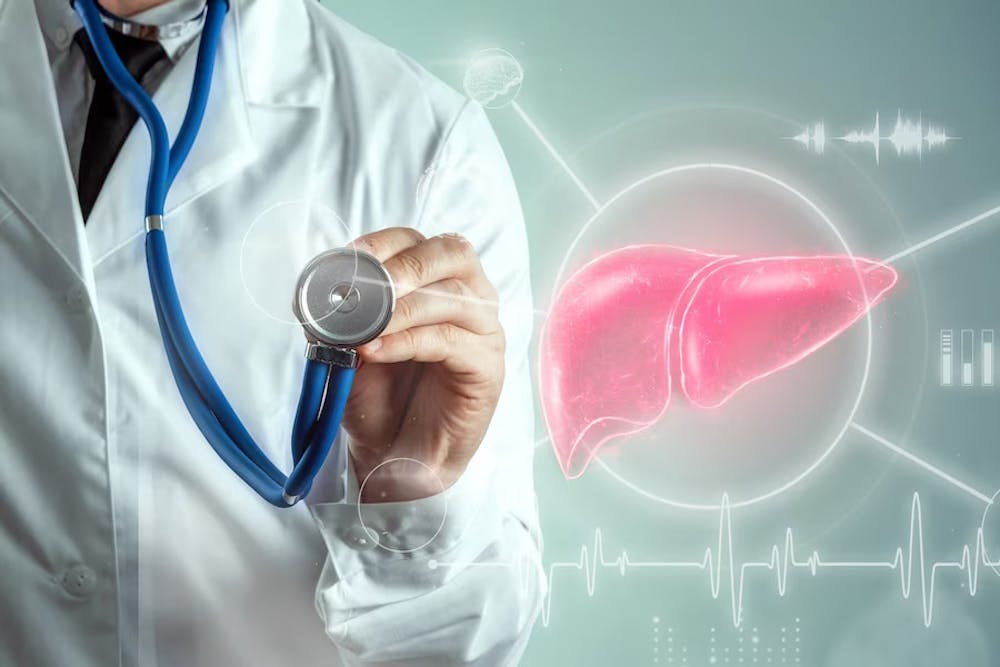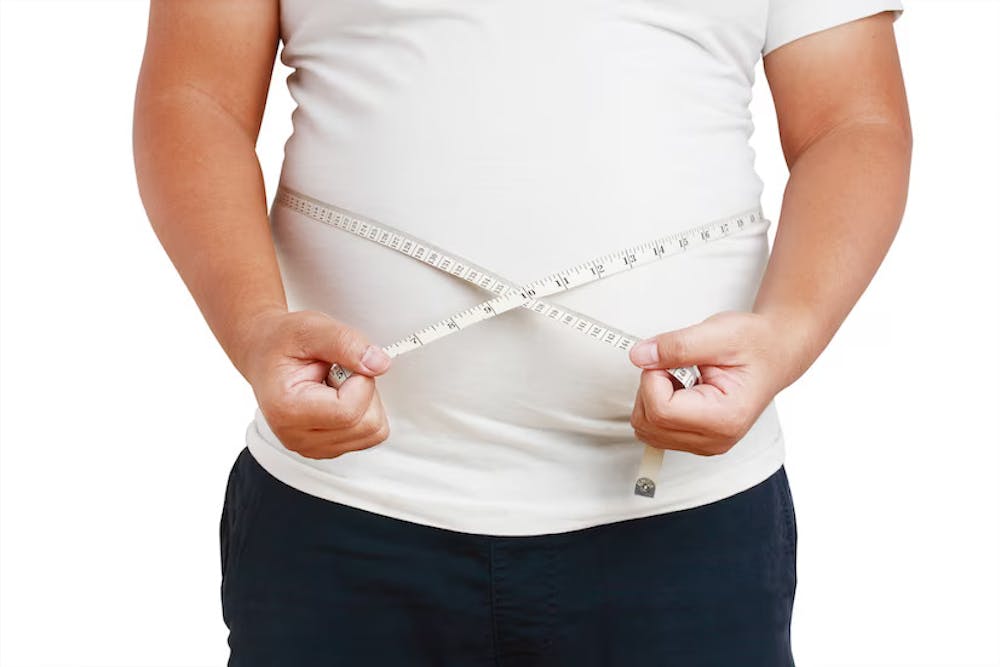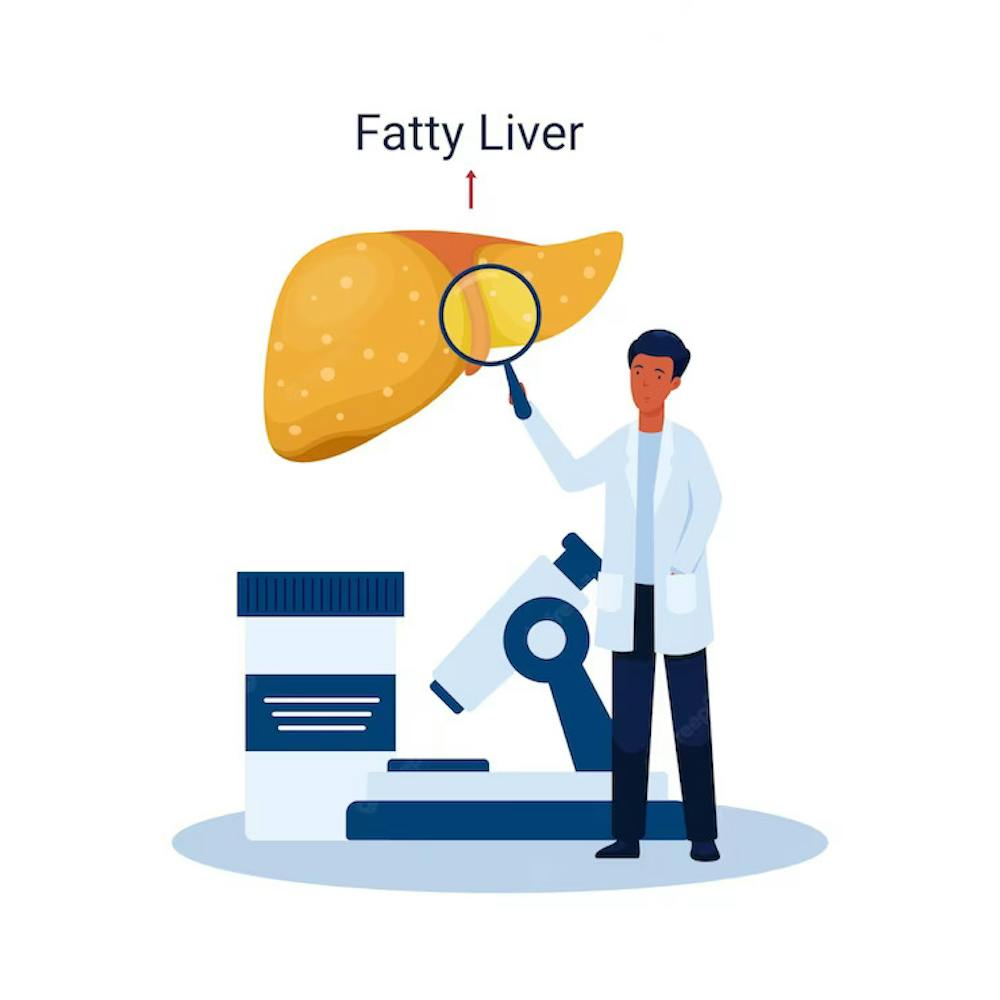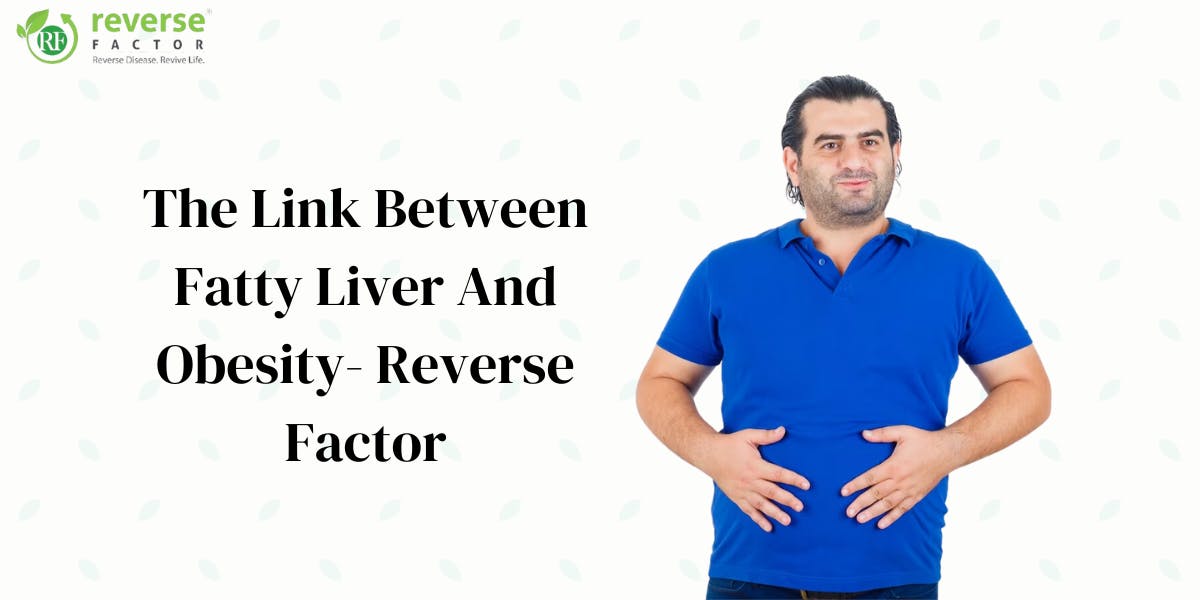Obesity is a well-known risk factor for a variety of health issues such as heart disease, diabetes, and stroke. But did you know that it can also develop into a serious illness known as fatty liver syndrome? Fatty liver disease develops when too much fat accumulates in the liver, causing inflammation and damage to this vital organ. The good news is that fatty liver disease is often reversible through fatty liver reversal diet and exercise.

In this article, we'll look at the connection between fatty liver and obesity, and the harmful effects it can have on your well-being. We will also try to understand how can fatty liver disease reversal program help improve the condition naturally. Continue reading this blog to get more knowledge on obesity and fatty liver disease.
Recommended: Detox Your Liver With Radish
How Does Non Alcoholic Fatty Liver Affect The Body?
The liver is essential to the body's general health and function. It is in charge of detoxifying toxic compounds and creating bile to help digestion. It also controls blood sugar levels and stores vital vitamins and minerals. However, if a person is obese, extra fat can collect in the liver and cause NAFLD.
This might cause scarring and reduced liver function over time, which can have major health repercussions. While NAFLD may not cause noticeable symptoms in its early stages, if left untreated, it can lead to more severe liver disorders.
Liver disease may also affect kidney function due to the liver's role in producing a hormone that regulates blood pressure and blood flow to the kidneys. So, individuals with kidney issues must opt for kidney treatment in India to manage their symptoms.
Must Read: How To Reverse Fatty Liver Disease – Reverse Factor
The Link between Fatty Liver and Obesity
You may not be aware, but being overweight can damage your liver. It turns out that fatty liver and obesity are strongly associated. Nonalcoholic fatty liver disease fatty liver is caused by fat accumulation in the liver. Fatty liver symptoms can develop when you are overweight. What's worse is that having fatty liver caused by obesity can make it difficult for you to lose weight and can result in more serious health issues. Being overweight damages your liver, and then your damaged liver makes it more difficult for you to lose weight. It's like a never-ending loop. This shows the importance of treating fatty liver from obesity.

See More: Fatty Liver Diet Food Chart To Eat And Avoid
What Is Fatty Liver?
When there is an excessive buildup of fat in the liver, fatty liver disease develops. Our liver is a crucial organ that helps in digestion and removes toxic materials from our bodies. However, fat builds up in the liver cells when we have fatty liver disease, making it more difficult for the liver to function normally.
There are two types of fatty liver disease. Alcoholic fatty liver disease is caused by drinking excessive alcohol. Nonalcoholic fatty liver disease is frequently linked to obesity and unhealthy lifestyle choices.

Some Major Fatty Liver Causes
1. Obesity
One of the main risk factors for developing fatty liver disease is being overweight or obese. Excess body weight increases the likelihood of fat accumulation in the liver.
2. Unhealthy Diet
A diet rich in added sugars, processed carbs, and saturated fats can promote the growth of fatty liver. Making these poor food choices may result in more fat being deposited in your liver.
3. Type 2 Diabetes
Fatty liver disease is more likely to affect people with type 2 diabetes. Diabetes-related insulin resistance and high blood sugar levels might build up excess fat in the liver.
4. Sedentary Lifestyle
Living a sedentary lifestyle and not doing enough exercise might cause fatty liver. Regular exercise supports liver function and helps in keeping a healthy weight.
5. Excessive Alcohol usage
Alcoholic fatty liver disease can be brought on by excessive alcohol consumption. Alcohol can cause fat buildup, inflammation, and liver toxicity.
Alcoholic Fatty Liver Symptoms
- Fatigue
- Abdominal Discomfort
- Loss of Appetite
- Weight Loss
- Nausea and Vomiting
- Jaundice
- Fluid Retention
Non Alcoholic Fatty Liver Disease Symptoms
- Fatigue
- Abdominal Discomfort
- Weight Loss or Gain
- Enlarged Liver
- Jaundice
- High Level of Liver Enzymes
- Insulin Resistance
- Increased thirst
- Frequent urination
Lifestyle Changes for Fatty Liver Disease and Obesity
A non alcoholic fatty liver treatment in India focuses on making lifestyle changes to reverse liver disease. Here are some of them -
1. Healthy Eating
Eating a nutrient-rich diet is essential for improving fatty liver and weight loss. You should adopt a non alcoholic fatty liver disease diet which includes fruits, vegetables, whole grains, and nuts. Make sure to stay away from foods rich in refined carbs, added sugars, trans fats, and saturated fats. You must give importance to portion control to manage your calorie intake.
2. Weight management
It's crucial to lose weight gradually if you are overweight or obese. With the help of a plant based diet and regular exercise, you can lose excess weight easily. Aim for losing 1-2 pounds each week with the help of regular physical activity.
3. Limit Alcohol Consumption
It's crucial to prevent or restrict alcohol use if you have alcoholic fatty liver disease or any liver-related conditions. Consult a healthcare expert for advice on safe drinking limits or total abstention.
4. Stay Hydrated
Drink enough water to stay hydrated throughout the day in order to promote healthy liver and other body functions.
5. Quit Smoking
If you smoke, we strongly advise that you should stop that immediately. Smoking can lead to liver damage and be a factor in a number of health problems.
6. Manage Diabetes and Insulin Resistance
If you have diabetes, it's crucial that you must control your blood sugar levels. You can do that with the help of a healthy diet, regular exercise, and regular monitoring.
7. Reduce Stress
Find healthy techniques to manage and reduce stress. Chronic stress has a negative impact on obesity and fatty liver disease. Engage in activities such as yoga, meditation, deep breathing exercises, or hobbies that bring you joy and relaxation.
Final Thoughts
You might have understood now how non-alcoholic fatty liver disease can develop as a result of fat building up in the liver caused by obesity. Hence, you must take proactive steps such as managing weight and exercising to reverse the condition.
These lifestyle adjustments may help you in managing insulin resistance, and liver function. You can create a better, healthier future if you arm yourself with knowledge and adopt healthier habits.
Frequently Asked Questions –
Can Obesity Cause Liver Disease?
Obesity can cause fatty liver disease, in which excess fat accumulates in the liver, causing inflammation and damage. This can lead to more serious liver disorders like cirrhosis and liver cancer.
How Do You Treat Fatty Liver From Obesity?
Obesity-related fatty liver can be treated with lifestyle changes like weight loss, a healthy diet, and exercise.
Will Losing Weight Help You Get Rid Of Fatty Liver?
Yes, losing weight can help reverse fatty liver disease by reducing fat accumulation and inflammation in the liver. This can improve liver function and lower the chance of developing more serious liver diseases.
Is Fatty Liver Due To Obesity Reversible?
Yes, obesity-related fatty liver is reversible via lifestyle changes such as weight loss, a good diet, and exercise.
What Are The Symptoms Of Fatty Liver Disease?
Fatty liver disease often has no symptoms, but some patients may experience fatigue, stomach pain, or swelling in the legs and ankles.
How Can I Prevent Fatty Liver Disease If I Am Obese?
Fatty liver disease can be avoided by keeping a healthy weight. You must also consume a nutritious diet, and engage in regular physical activity.
Can Certain Foods Help Prevent Or Treat Fatty Liver Disease?
A diet high in fruits and vegetables, whole grains, and legumes are best for the prevention and treatment of fatty liver disease.
Can Alcohol Consumption Contribute To Fatty Liver Disease?
Yes, excessive alcohol consumption can contribute to fatty liver disease. It can occur even in those who are neither overweight nor obese.




